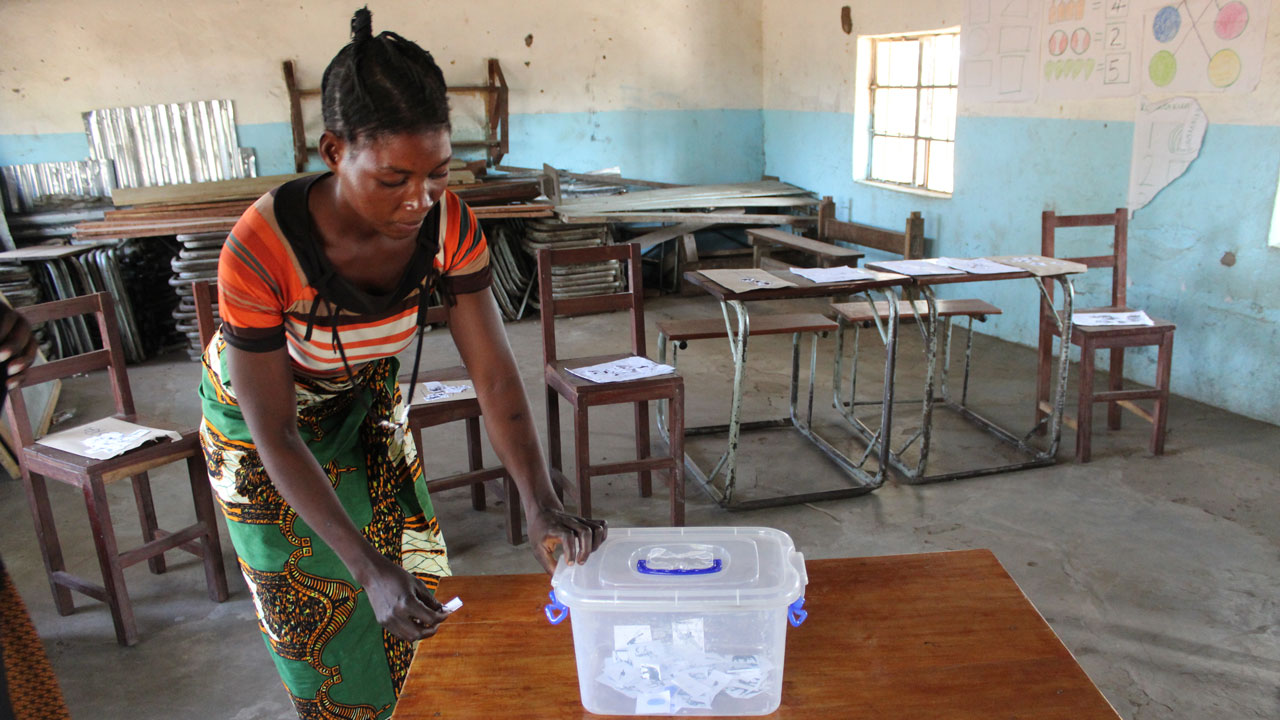
Low participation and underrepresentation of women in community-led governance structures perpetuate their exclusion in benefit sharing and conservation efforts.
In Zambia, women and men are making the choice to challenge cultural and social barriers to women’s participation in natural resource management.
When it comes to Zambia’s natural resource governance structures, the cultural perception that only men can be the leaders excludes many capable women from leadership roles. Women’s interests and priorities are underrepresented, and women can do little to change this from the sidelines. Due to gender norms, most of the work and decision-making tends to be assigned to men, who are the only ones thought to have the competencies required for wildlife operations.
Zambia’s wildlife policy entrusts power to communities to establish community resource boards (CRB) to manage their natural resources in game management areas, which are protected areas buffering national parks; but with no gender focus, women community leaders continue to be ignored within community management and governance structures. To be elected to the CRB, women have to compete with men on an uneven playing field. Few are willing to stand for election, but when they do, they face many barriers—limiting their chances of success—such as lack of resources for campaigns, lack of acceptance, time constraints to campaign, and risks of violence against women and girls. If they succeed, the same challenges continue to impact their meaningful participation. Asserting themselves within traditionally male-dominated structures exposes them further to the risks of violence within their family and communities.
In Zambia, there are 77 CRBs nationwide, and only a few have ever elected women to leadership positions. A similar scenario exists in the forestry sector with community forest management groups.
Strategies to increase women’s participation
In 2020 USAID partners, Frankfurt Zoological Society and the Zambia CRB Association, tested a pilot to use the CRB elections as an entry point to increase women’s participation in four CRBs located in the North Luangwa ecosystem: Mukungule, Nabwalya, Chikwa, and Chifunda. Turns out, women make really great candidates for leadership positions. Today, one out of four CRB leadership positions in the target CRBs is occupied by a woman, and the Village Action Groups (VAG) that support CRBs increased women’s participation to 50 percent. In 2018 women barely had any representation at either level.
To observe International Women’s Day, USAID profiled the community voices of those individuals who stood up to challenge existing structural barriers and gender norms to increase women’s involvement in wildlife community governance leadership roles.
Inspiring new leaders
Nancy Mutemba, Community Liaison Assistant and Gender Focal Person, Frankfurt Zoological Society
Harriet Mupeta – Mukungule CRB Board Secretary
Unwilling to buy votes, Catherine Chatata – Nabwalya CRB
Without Women there is no Tradition, Chief Chikwa – Chikwa CRB Patron
Agnes Chavula – Chikwa CRB Chairperson
About the author
Patricia Malasha
Patricia Malashais the Gender and Social Inclusion Advisor for the USAID-funded Integrated Land and Resource Governance (ILRG) program in Zambia.
She provides technical leadership on gender integration in institutional and community land and natural resource governance, including in the forestry and wildlife sectors. She works closely with the government, traditional leaders, local implementing partners, and communities to provide technical expertise and capacity-building support, also collecting lessons learned and best practices. With more than 25 years of experience as a policy, gender, and social inclusion expert, Patricia has worked on several programs on social protection, economic development, health, human rights, and natural resources. Patricia has a bachelor’s degree in Social Science (Psychology) from the University of Zambia and a master’s degree in Public Policy and Management from the University of London.